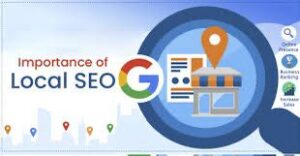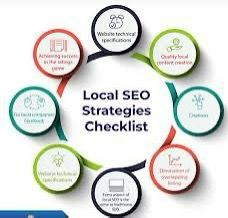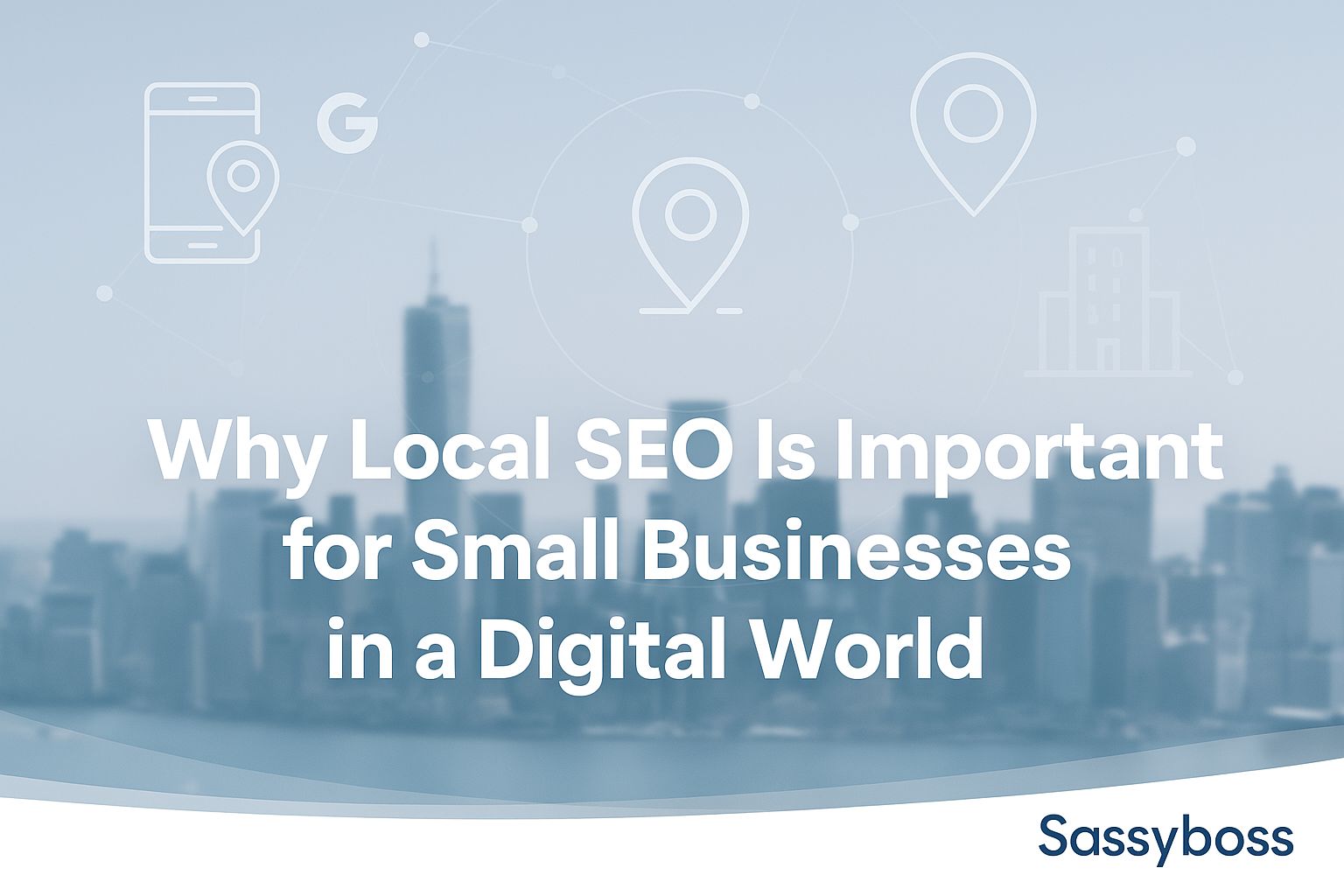Why Local SEO Is Important for Small Businesses in a Digital World
In today’s fast-paced, hyper-connected digital world, the way customers find and interact with businesses has fundamentally changed. People no longer flip through phone books or rely on word-of-mouth alone—they turn to search engines, especially Google, to find what they need nearby. For small businesses, this shift has opened up powerful new opportunities to be discovered, but only if they’re playing by the rules of the game: Local SEO.
If you’re wondering why local SEO is important or even asking what is local SEO, you’re in the right place. In this post, we’ll break down everything you need to know about local SEO, why it matters for small businesses, and how you can start leveraging it to grow your presence and customer base.

What Is Local SEO?
Local SEO (Search Engine Optimization) is a branch of SEO that focuses on optimizing a business’s online presence to attract more customers from relevant local searches. These searches usually include location-specific keywords such as “coffee shop near me” or “plumber in Brooklyn.”
Local SEO ensures that when people in your area search for services or products you offer, your business appears at the top of the results—especially in the Google Local Pack, which shows local businesses on a map alongside reviews, hours, and contact info.
Unlike general SEO, which targets national or global audiences, local SEO is all about connecting with customers in your community—those most likely to walk through your door or pick up the phone.

Why Local SEO Is Important for Small Businesses
1. Increased Online Visibility in Local Searches
According to Google, nearly 46% of all searches have a local intent. This means that almost half the time, people are looking for something nearby—be it a restaurant, salon, store, or service provider. If your business isn’t showing up in these searches, you’re essentially invisible to a huge chunk of potential customers.
Local SEO ensures your business gets seen when it matters most. When optimized correctly, your business can appear on Google Maps, in the Local Pack, and among the top search results, driving more organic traffic to your website and storefront.
2. Higher Conversion Rates from Local Leads
Local searches typically signal high intent—people are looking to take action soon. Whether they’re searching for “emergency locksmith” or “best tacos near me,” these users are often ready to buy.
In fact, studies show that 78% of local mobile searches result in an offline purchase, usually within 24 hours. That’s a conversion rate most digital marketers dream of. Local SEO helps you tap into this ready-to-buy audience and convert them into loyal customers.
3. Competing with Larger Businesses
Let’s face it—small businesses can’t always outspend big corporations on advertising. But with local SEO, you don’t need a massive marketing budget. You just need to be strategic and consistent.
Local SEO levels the playing field by giving small businesses the tools to compete effectively in local search results, even against larger, better-known brands. When someone nearby searches for your services, Google prioritizes relevance and proximity—not size.
4. Builds Trust and Credibility Through Reviews
Online reviews are a big part of local SEO. When your Google Business Profile is filled with positive reviews, you’re not just optimizing your visibility—you’re also building social proof and trust.
Customers are more likely to choose businesses with good ratings and recent reviews. Encouraging satisfied customers to leave feedback can significantly boost your local rankings and your reputation.
5. Supports Mobile Optimization and Voice Search
With the rise of smartphones and voice assistants like Siri, Alexa, and Google Assistant, local searches have become even more frequent and conversational.
People now ask questions like: • “Where’s the nearest bakery?” • “Best dog groomer near me” • “Top-rated dentist in [city]”
Local SEO ensures your business is optimized for these mobile and voice search trends, helping you stay relevant as user behavior evolves.

Key Components of Local SEO
Now that you understand why local SEO is important, let’s look at the core elements that make up a successful local SEO strategy:
1. Google Business Profile (GBP) Optimization
Your Google Business Profile (formerly Google My Business) is arguably the most important tool for local SEO. Make sure to:
• Claim and verify your listing
• Add accurate business information (address, hours, phone number)
• Choose relevant categories
• Upload high-quality images
• Encourage and respond to customer reviews
2. NAP Consistency
Your Name, Address, and Phone Number (NAP) should be consistent across your website, social media, and online directories (Yelp, Yellow Pages, etc.). Inconsistent info can confuse both users and search engines, negatively impacting your rankings.
3. Local Keywords
Include location-specific keywords in your website content, meta descriptions, titles, and blog posts. For example:
• “Best hair salon in Austin”
• “Affordable HVAC services in Sacramento”
4. On-Page SEO
Make sure your website is technically sound and optimized for:
• Mobile devices
• Fast loading times
• Clear calls-to-action
• Schema markup for local businesses
5. Local Citations and Backlinks
List your business in reputable local directories. Earning backlinks from local blogs, news sites, and industry-related websites can also improve your local authority and rankings.
6. Online Reviews and Reputation Management
Actively request reviews from happy customers and respond professionally to feedback—both positive and negative. Reviews impact local rankings and influence potential buyers.

Final Thoughts: Don’t Ignore Local SEO
In the digital age, your online presence is your storefront—and local SEO is how you put it on the map. For small businesses especially, local SEO is one of the most cost-effective, high-impact ways to attract nearby customers and stand out in a crowded market.
If you’re not actively investing in local SEO, you’re leaving money on the table and handing business to your competitors. But with a little strategy and consistency, you can start reaping the rewards of a strong local presence.
Whether you’re a family-owned restaurant, a neighborhood dentist, or a freelance photographer, local SEO isn’t just a nice-to-have—it’s a must-have.
Need help getting started with your local SEO? Drop your questions in the comments or reach out—we’re here to help your business grow locally and thrive digitally.
